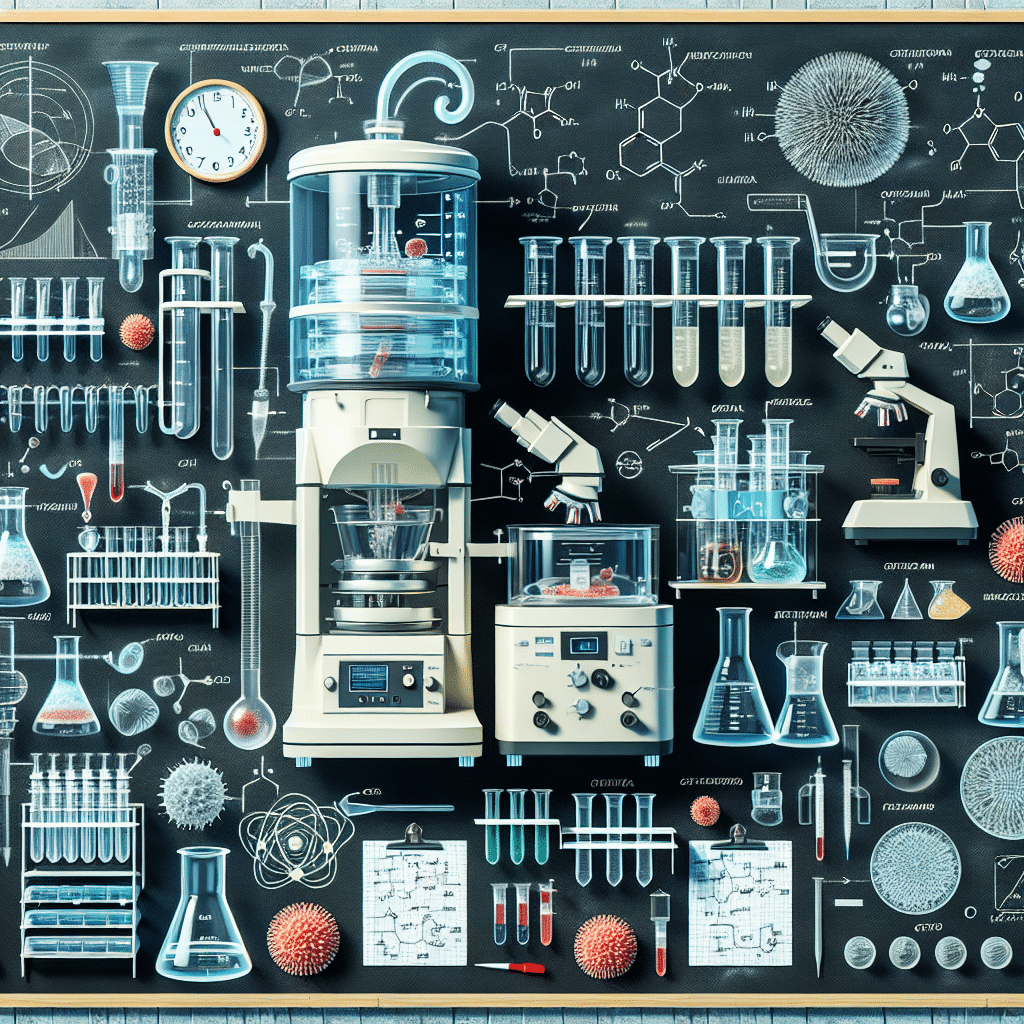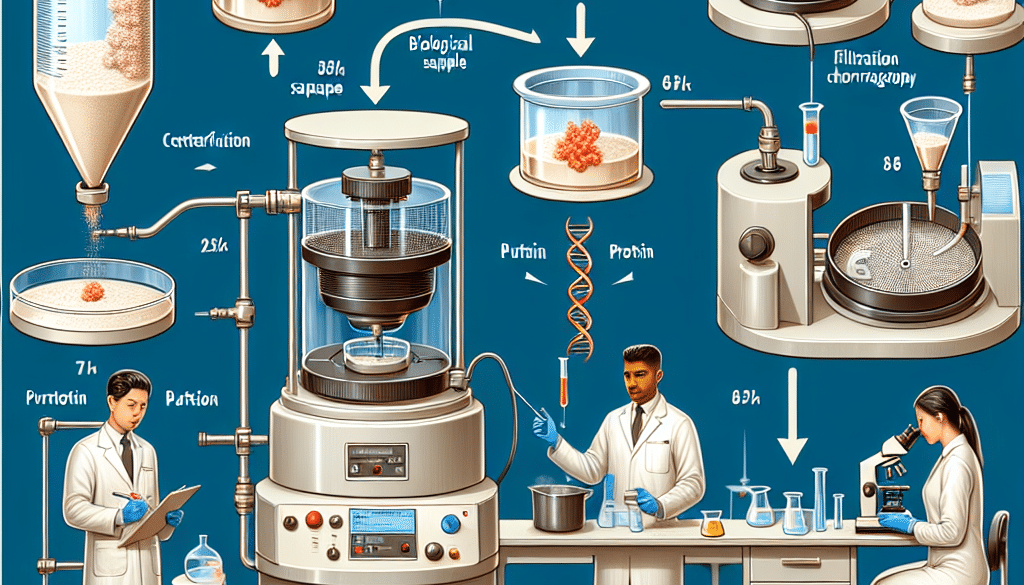How Do You Extract Pure Protein?
-
Table of Contents
- Extracting Pure Protein: Techniques and Applications
- Understanding Protein Purification
- Initial Extraction Methods
- Separation Techniques
- Centrifugation
- Chromatography
- Electrophoresis
- Refining Purity
- Assessing Protein Purity
- Applications of Pure Proteins
- Case Studies and Statistics
- Conclusion: The Importance of Protein Purity
- ETprotein: Your Source for High-Quality Protein Products
Extracting Pure Protein: Techniques and Applications

Proteins are essential macromolecules that play a critical role in virtually all biological processes. In the fields of biotechnology, pharmaceuticals, food science, and nutrition, the extraction of pure protein is a fundamental process. This article delves into the methods used to extract pure protein, their applications, and the importance of purity in various industries.
Understanding Protein Purification
Protein purification is the process of isolating one or a few proteins from a complex mixture, usually cells, tissues, or whole organisms. Protein purity is crucial for research and industrial applications because contaminants can interfere with the protein’s function and structural studies.
Initial Extraction Methods
The first step in protein purification is to break open the cells containing the protein of interest. This can be achieved through:
- Physical disruption: Methods like sonication, homogenization, or bead beating.
- Chemical lysis: Using detergents or enzymes to dissolve cell membranes.
- Osmotic shock: A sudden change in osmotic pressure to rupture cells.
Once the cells are lysed, the mixture contains a wide range of molecules, including proteins, nucleic acids, lipids, and carbohydrates.
Separation Techniques
To isolate the target protein, several separation techniques are employed:
Centrifugation
Centrifugation is used to separate components based on size and density. The lysate is spun at high speeds, causing heavier particles to sediment. This step can remove cell debris and large organelles.
Chromatography
Chromatography is a cornerstone of protein purification. There are several types:
- Ion Exchange Chromatography: Separates proteins based on charge.
- Size Exclusion Chromatography: Separates proteins based on size.
- Affinity Chromatography: Uses a specific interaction between a protein and a ligand.
- Hydrophobic Interaction Chromatography: Separates proteins based on hydrophobicity.
Each type of chromatography can be fine-tuned to target the specific characteristics of the protein of interest.
Electrophoresis
Electrophoresis is another method used to separate proteins based on their size and charge. SDS-PAGE is a common type of electrophoresis used in protein purification.
Refining Purity
After initial separation, further steps may be necessary to achieve the desired level of purity. These can include repeating chromatography steps, dialysis to remove small molecules, or ultrafiltration.
Assessing Protein Purity
Throughout the purification process, it’s essential to assess the purity of the protein. Techniques such as SDS-PAGE, Western blotting, and mass spectrometry are used to evaluate the success of the purification steps.
Applications of Pure Proteins
Pure proteins have a wide range of applications:
- Research: Structural biology, enzymology, and protein-protein interactions.
- Pharmaceuticals: Production of therapeutic proteins and vaccines.
- Food Industry: Enzymes for food processing and protein supplements.
- Agriculture: Pest-resistant crops and animal feed additives.
Case Studies and Statistics
Several case studies highlight the importance of protein purity. For example, the development of insulin analogs for diabetes treatment required highly pure protein preparations. Similarly, the production of monoclonal antibodies for cancer therapy relies on the extraction of pure proteins.
Statistics show that the global market for protein purification and isolation is growing, with a projected increase from $6.6 billion in 2020 to $9.5 billion by 2025, according to a report by MarketsandMarkets.
Conclusion: The Importance of Protein Purity
In conclusion, extracting pure protein is a complex but essential process in many scientific and industrial fields. The purity of proteins is critical for their function and the reliability of research results. Advanced techniques such as chromatography and electrophoresis have made it possible to achieve high levels of purity, which is indispensable for applications ranging from drug development to food technology.
ETprotein: Your Source for High-Quality Protein Products
If you’re in need of pure protein products, ETprotein is a company that stands out in the industry. They offer a wide range of high-quality protein products, including organic rice protein, pea protein, and various seed proteins. Their products are characterized by a neutral taste, non-GMO, and allergen-free attributes, with L-(+)-Ergothioneine purity over 98%, making them suitable for a diverse range of applications.
ETprotein’s commitment to excellence is evident in their service to various industries, including nutraceuticals, pharmaceuticals, cosmeceuticals, and food and beverage. With a reputation for reliability and quality, ETprotein is a trusted supplier for leading global brands and Fortune 500 companies.
For more information or to sample their products, reach out to ETprotein and discover how they can meet your protein needs.
About ETprotein:
ETprotein, a reputable protein and L-(+)-Ergothioneine (EGT) Chinese factory manufacturer and supplier, is renowned for producing, stocking, exporting, and delivering the highest quality organic bulk vegan proteins and L-(+)-Ergothioneine. They include Organic rice protein, clear rice protein, pea protein, clear pea protein, watermelon seed protein, pumpkin seed protein, sunflower seed protein, mung bean protein, peanut protein, and L-(+)-Ergothioneine EGT Pharmaceutical grade, L-(+)-Ergothioneine EGT food grade, L-(+)-Ergothioneine EGT cosmetic grade, L-(+)-Ergothioneine EGT reference grade and L-(+)-Ergothioneine EGT standard. Their offerings, characterized by a neutral taste, non-GMO, allergen-free attributes, with L-(+)-Ergothioneine purity over 98%, 99%, cater to a diverse range of industries. They serve nutraceutical, pharmaceutical, cosmeceutical, veterinary, as well as food and beverage finished product distributors, traders, and manufacturers across Europe, USA, Canada, Australia, Thailand, Japan, Korea, Brazil, and Chile, among others.
ETprotein specialization includes exporting and delivering tailor-made protein powder and finished nutritional supplements. Their extensive product range covers sectors like Food and Beverage, Sports Nutrition, Weight Management, Dietary Supplements, Health and Wellness Products, and Infant Formula, ensuring comprehensive solutions to meet all your protein needs.
As a trusted company by leading global food and beverage brands and Fortune 500 companies, ETprotein reinforces China’s reputation in the global arena. For more information or to sample their products, please contact them and email sales(at)ETprotein.com today.














